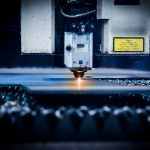In the ever-evolving landscape of the manufacturing industry, where constant adaptation to safety regulations and technological advancements is the norm, one persistent issue remains— the pervasive reliance on plastic packaging. While plastic packaging has undeniably revolutionized various facets of manufacturing, particularly in enhancing food safety and cost-effectiveness, its profound impact on the environment raises pressing concerns. The time has come for a concerted effort to address and rectify the problem of plastic packaging.
To effectively tackle this challenge, it is imperative to delve into the root of the issue, which lies with the manufacturers utilizing plastic in their production, packaging, and sales processes. Fortunately, there exists a spectrum of strategies to curtail plastic use in manufacturing, offering a ray of hope for a more sustainable future. One promising avenue involves a shift in machinery used during production processes, with the adoption of innovative techniques like ultrasonic sealing or welding. This technology, applicable across various industries, facilitates permanent bonding for diverse materials, including paper, plastic, and nonferrous metals.
Another viable solution lies in the modification of materials themselves. Transitioning to reusable materials or product components can significantly mitigate waste and alleviate the burden on overstressed landfills. Similarly, embracing recyclable or sustainably sourced materials presents an opportunity to replace plastic tertiary packaging with 100% recycled cardboard or substitute primary packaging with glass.
Opting for less environmentally harmful plastics is also gaining traction as a means to reduce carbon footprints. Manufacturers are increasingly shifting towards hard plastics like PET, which can be recycled, as opposed to the environmentally burdensome soft plastics that pose disposal challenges. Each positive adjustment contributes to the collective effort, as the current trajectory of plastic production is unequivocally unsustainable for our planet. The omnipresence of microplastics in the air and food underscores the urgency of substantial change.
Without swift and substantial change, there is a looming risk of consumers disengaging from companies that neglect to address the plastic problem. Hence, the imperative for manufacturers to proactively adopt sustainable practices is not just an environmental concern but also a strategic business imperative. For additional insights on reducing plastic use in manufacturing, refer to the accompanying resource below. It provides further depth and guidance for those committed to navigating the path toward a more sustainable and responsible future.
Infographic created by Herrmann Ultrasonics, an industrial plastic welding company










